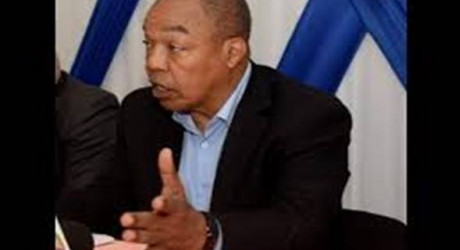UK Politics: From Chaos to Change to Chaos?
11:01 am, Mon October 24, 2022
By Michael Siva
British politics has been in turmoil in 2022. First, on September 6, Boris Johnson resigned as Prime Minister of the United Kingdom, after succumbing to a growing wave of criticism, following a series of crises and scandals which saw his administration drop significantly in the opinion polls. Then Liz Truss became PM for a record-breaking shortest tenure ever for a British PM. Now Rishi Sunak will be the first PM of South Asian descent, creating more British political history.
Members of the governing Conservative Party felt that Johnson had become a liability to the party, and that he had to vacate the leadership for someone new, and untainted by scandal, to revive the party’s fortunes.
However, what followed was nothing short of political chaos.
Prime Minister Truss and her chancellor of the exchequer (equivalent of Finance Minister in Jamaica) Kwasi Kwarteng implemented a mini-budget which was disastrous. It embodied massive cuts in taxation, especially to the highest earners in British society, in a throw-back to the now-discredited trickle-down economics of Margaret Thatcher and Ronald Reagan. This left a huge hole in the budget, which Truss and Kwarteng said they would make up with massive borrowing.
But that irresponsible approach to economics led to a financial meltdown in the British economy. The financial markets, upon which the British economy depends heavily, did not like it, and the pound plummeted. In order to steady the slide, the Bank of England pumped billions of pounds of gilts into shoring up the pound, and raised interest rates considerably.
The rise in interest rates resulted in mortgage rates going up significantly, with many mortgagees now paying hundreds of pounds more over the course of a year. Many of these mortgagees are traditional Tory voters, and in the matter of a week, the opinion polls showed support for the Conservative Party plummeting to new depths. One recent opinion poll had Labour at 53% and the Conservatives scraping the bottom of the barrel at 14%!
The pound has taken a serious beating this century. In 2007, when Tony Blair was PM, it took two US dollars to buy a British pound. Before the Brexit referendum, the pound was worth US$1.58, but now it is approaching parity as it wavers between US$1.11 and US$1.13.
WHAT THIS MEANS FOR JAMAICANS LIVING IN THE UK
Many UK-Jamaicans send remittances back home. A declining pound means that £100 in remittances buys less than it used to. When it was J$200 to a British pound, then £100 would be converted to J$20,000. But when the pound sterling sank to J$150 at the height of the crisis, then £100 was only converted to J$15,000. This is how this British crisis affected Jamaicans who were receiving remittances from the UK.
This collapse in popular support meant that Truss and Kwarteng had to go. There was no honeymoon period for this new Tory regime. Kwarteng resigned after 38 days in office, making him the shortest-serving chancellor not to die in office. He did not beat the record of 30 days, still held by Iain Macleod, who died in office in July 1970.
However, Truss went on to break the record for the shortest-serving PM. The previous record was held by George Canning, who died in office after 119 days in 1827. Canning was one of a series of Tory prime ministers at the time who opposed the emancipation of enslaved people in the British West Indies.
PM Truss had lost so much support from fellow Tory members of parliament that she felt compelled to announce her resignation. Her final day in office will be on Friday 28 October, when the new PM is announced, making her tenure a mere 52 days in office.
WHERE DOES BRITISH POLITICS GO FROM HERE?
The kingmakers in the Tory party, a group of backbenchers called the 1922 Committee, set an unusually high threshold for potential candidates to get by Monday 24 October. Each candidate was required to secure the support of at least 100 Tory MPs in order to go on the ballot for Conservative Party members to vote for the new party leader, and hence the new PM.
Given that there are 357 Tory MPs, that meant no more than three candidates could make it to the final hurdle. The 1922 Committee set this high threshold to prevent the long, drawn-out contest over the summer which saw a plethora of candidates crawling out of the woodwork. They wanted this contest to be resolved quickly, to repair the damage done to the economy.
THE NEW PM
Former chancellor Rishi Sunak was the first and only candidate to announce that he had secured the required 100 MP threshold. Sunak was chancellor under Johnson, and it was his resignation at the start of the summer which triggered the eventual downfall of Johnson. In the previous election campaign, Truss had beaten Sunak, despite the latter warning, quite prophetically, that Truss’s economic policies would be disastrous for those who have mortgages.
But Truss still defeated Sunak in a poll among 200,000 largely white, elderly, retired Tory party members. The result probably reflected the demographic make-up of the membership.
Former PM Boris Johnson attempted to make a comeback, despite the many controversies surrounding him during his two and a half years at the helm, during which time he presided over nearly 200,000 deaths from Covid, amongst allegations of corruption in the administration of VIP fast lane contracts, and partying while the rest of the population was in lockdown. Johnson, still remains popular with Tory party members, nonetheless withdrew from the contest on Sunday night.
However, the reason he gave for his withdrawal was also shrouded in controversy. He claimed he had secured 102 nominations, but had withdrawn in the interest of party unity. But only 58-60 Tory members of parliament had declared their support, casting doubt upon his claim.
The outsider, Penny Mordaunt, little known not just outside Britain, but also among the Tory party membership, struggled to get support, and withdrew by lunchtime on Monday.
This cleared the way for Rishi Sunak to be installed as Britain’s first PM of Asian descent, with no contest going forward to the Tory party membership. This is controversial, because it is believed that either Johnson or Mordaunt would have beaten Sunak in a vote among Tory members.
The divisions within the Tory party are likely to continue for some time yet.
Dr Michael Siva is a Historian specialising in British colonial history

8:50 pm, Fri April 12, 2024

2:04 pm, Fri April 12, 2024

5:58 am, Fri April 12, 2024








 All feeds
All feeds







